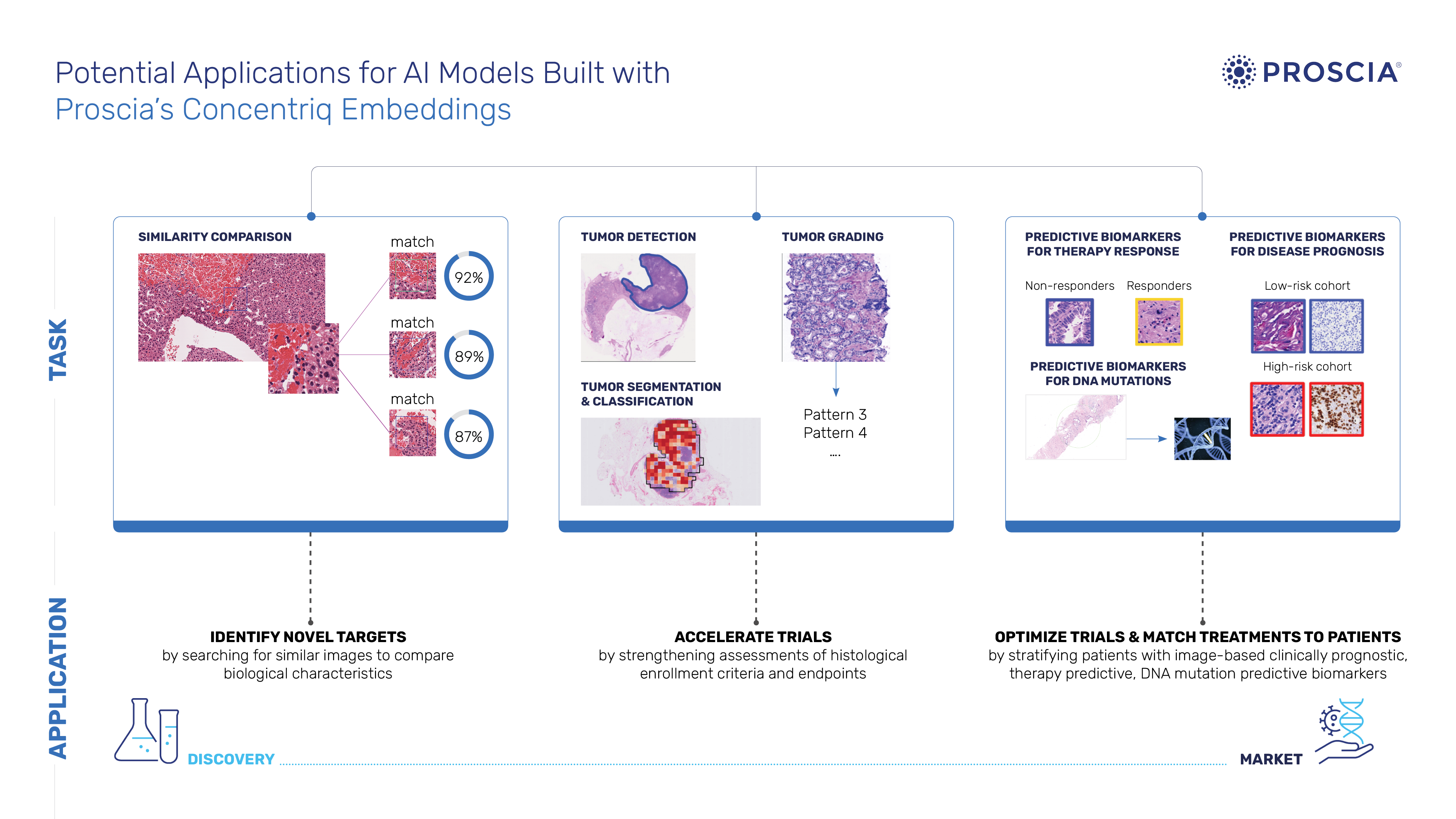Proscia Releases Concentriq Embeddings and AI Toolkit for Digital Pathology Research
Proscia has introduced Concentriq Embeddings and the Proscia AI Toolkit as part of its Concentriq platform, providing technical resources for AI model development in digital pathology. These tools are designed to allow life sciences researchers to leverage advanced pathology foundation models and integrate real-world data to accelerate biomarker discovery, diagnostics, and clinical research.
The Concentriq Embeddings feature allows pathology and data science teams to generate high-dimensional numerical representations—embeddings—from whole slide images (WSIs). These embeddings are initially derived from four powerful foundation models: DINOv2, PLIP, ConvNext, and CTransPath.
Researchers can select the best foundation model for their specific needs, with applications ranging from image classification and segmentation to risk scoring and multimodal data integration. This enables rapid prototyping and large-scale AI model development directly within the Concentriq platform.
See also: 19 Companies Pioneering AI Foundation Models in Pharma and Biotech
Proscia's real-world data offering enhances the Concentriq Embeddings launch by providing access to over 10 million de-identified pathology images integrated with clinical and genomic data. This dataset allows researchers to connect histological features with molecular profiles like gene expression, supporting diverse research needs such as predictive modeling and the identification of novel therapeutic targets.
This launch builds upon Proscia's earlier updates to the Concentriq platform, including the introduction of multi-AI workflows that enable pathologists to simultaneously view results from multiple AI applications within a single interface. These enhancements aim to improve diagnostic accuracy and operational efficiency in digital pathology.
AI Toolkit for Model Development
In addition to Concentriq Embeddings, Proscia has released the Proscia AI Toolkit, a suite of open-source resources designed to simplify AI model development. The toolkit includes:
- A Python client for seamless API integration with Concentriq Embeddings.
- Comprehensive tutorials paired with Python code in Jupyter Notebooks, enabling users to learn and implement AI quickly.
- A growing library of helper functions for tasks like image tiling and organizing API outputs, reducing the complexity of common processes.

Potential applications for AI models built with Concentriq Embeddings
Concentriq Embeddings have been shown to significantly reduce AI model development time during pilot programs. In collaboration with a top pharmaceutical company, data scientists developed algorithms 13 times faster, generating 80 AI-based breast cancer biomarker prediction models in under 24 hours. The embeddings were used to train and validate models more efficiently, supporting faster iteration and hypothesis testing.
This launch builds on Proscia's ongoing efforts to enhance AI integration in pathology. The Concentriq platform's integration with existing data infrastructure allows teams to leverage data instantly for AI development, eliminating the need for time-consuming data migration and processing. By providing immediate access to data and AI tools, Proscia aims to accelerate the development of novel therapies and diagnostics.
To learn more about Concentriq Embeddings, Proscia invites interested parties to register for their upcoming webinar, "Unlocking the Promise of Foundation Models in Pathology for AI-Driven Drug Discovery & Development" scheduled for November 6, 2024, at 11 AM EDT.
Topics: AI & Digital